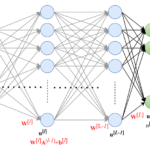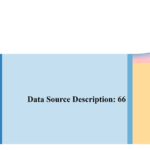“I’m a librarian and I do feel part of a data community – the library sector is such a strong community, there’s a real sense of identity and belonging. When I travel to CODATA and RDA events I feel like I’m meeting colleagues and friends from across the world, building little data bridges around the globe.”
Monthly Archives: September 2022
Disaster Risk Reduction and Open Data Newsletter: September 2022 Edition


Scientists exposed plants to a yearlong drought. The result is worrying for climate change
Global experiment found ability of grasses and shrubs to store carbon suffered. Europe and many other parts of the world are currently grappling with extreme drought—and that could be bad news for efforts to curb climate change, concludes a new global study of how shrubs and grasses respond to parched conditions.
Extreme weather in China highlights climate change impacts and need for early warnings
Extreme weather – record-breaking heatwaves, severe drought, and deadly rainfall – have battered China since June. The summer of extremes – in China as in Europe – has underlined the importance of the WMO community’s commitment to Early Warning and Early Action and reinforced the need for the ongoing campaign to provide Early Warnings for All in the next five years.
Predicting—and preparing for—the worst
Climate change is making extreme weather events more frequent and intense. So improving local risk prediction—and studying how extreme weather could affect renewable energy systems—will be critical to building resilience into vulnerable communities and the growing green energy sector.
Climate risk assessment needs urgent improvement
Existing constraints in current climate risk assessments make them inappropriate to effectively assess the true exposure of society and businesses to climate-related risk. Using the key constraints to guide a conceptual framework, we identify four cross-cutting and inter-related critical paths for improvement.
Future of Rail | How rail industry is fighting back against extreme weather events
Increased frequency of extreme weather events is taking its toll on rail infrastructure but the industry is collaborating with academia to strengthen assets against future conditions. Britain’s rail infrastructure is put under intense pressure every day as it carries millions of people to and from their destinations. It is built to last, but some of it has been in place for decades – if not longer – and is reaching the end of its life.

Saving lives with FAIR data: evidence based public policies and the impact of data in disaster and climate change risk management
Informed decision-making and coordinated action for effective disaster and climate change risk reduction require timely and reliable data and information. Technological advances enable us to better understand nature and society. However, despite these advances, challenges remain for Findable, Accessible, Interoperable, and Reusable (FAIR) data for decision-making. The COVID-19 pandemic is a good example of how data FAIRness saved lives. It is necessary to identify what challenges the government, non-governmental organisations, and policy users face in FAIRness of data.
An Analysis of Barriers to the Implementation of an ISO Certified Quality Management System for National Meteorological and Hydrological Services in the Anglophone Caribbean
Aeronautical Meteorological Offices under National Meteorological and Hydrological Service provide critical meteorological, hydrological, ocean and climatological information that sustain air navigation safety, efficiency, and regularity
Navigating the landscape of support for the process to formulate and implement national adaptation plans
This publication provides an overview of the landscape of support available for adaptation and of the targeted programmes and initiatives that have been set up to facilitate the formulation and implementation of national adaptation plans (NAP).
Harnessing Nationally determined contributions to tackle loss and damage in least developed countries
This paper analyses how least developed countries (LDC) are currently reporting loss and damage in their Nationally Determined Contributions (NDC) and National Adaptation Plans, identifies gaps or issues in coverage, and suggests a framework for addressing these gaps.
Understanding the flood resilience of rural communities in Mangatarem, Pangasinan
This document presents the work of community flood resilience program of the Philippine Red Cross and IFRC that is implemented as part of the Zurich Flood Resilience Alliance. It introduces the Alliance’s unique resilience measurement approach – the Flood Resilience Measurement for Communities (FRMC) – and presents the key results and key insights gained from the FRMC implementation in the program communities in Mangatarem, Pangasinan.
Womens Resilience in Fiji: how laws and policies promote gender equality in climate change and disaster risk management
This report aims to conduct a gender analysis of the national legal and policy frameworks of Fiji to explore how much gender considerations are integrated in its climate change and disaster risk management (CCDRM) laws, policies, and plans and how they contribute to strengthening women’s resilience in the country
Multilateral development bank support for disaster resilient infrastructure system
This publication explores how multilateral development banks (MDBs) can help improve the resilience of infrastructure given increasing climate and disaster risks. It highlights opportunities in three areas: risk-informed planning, financing assistance, and knowledge building through regional and global networks

Asia-Pacific Ministerial Conference on Disaster Risk Reduction 19 – 22 September
With the Asia-Pacific experiencing a growth in the frequency and intensity of disasters, investment in reducing our risk to disasters is vital to saving lives and livelihoods, minimising economic loss and ensuring no one is left behind.The 2022 Asia-Pacific Ministerial Conference on Disaster Risk Reduction presents an opportunity for delegates from across the Asia Pacific to showcase and share experiences, action and innovation to help build a resilient future for the region..
Southern Africa Ministerial Meeting on Integrated Early Warning and Early Action System Initiative, 5 – 9 September
The aim of the Conference is to converge on the priority requirements for the Southern African region to further accelerate the implementation of Sendai Target G, to substantially increase the availability of and access to early warnings.
IDRiM 2022 – 12th Conference of the International Society for Integrated Disaster Risk Management 21 September, 09:00 AM (CET)
Critical steps for research and practice in disaster risk management in the age of climate change and COVID-19 pandemics
IWA World Water Congress & Exhibition 11-15 September 2022
All of us in IWA are relieved and thrilled that the countdown to the World Water Congress and Exhibition in Copenhagen has re-started. The Nordic region is a world-leading hub for technology and innovation, making it the ideal location for the Congress; a space to inspire change, stimulate innovative research and share best practices for a water-wise world.

July and August 2022: Publications in the Data Science Journal

 Title: Machine Learning Applied for Spectra Classification in X-ray Free Electron Laser Sciences Title: Machine Learning Applied for Spectra Classification in X-ray Free Electron Laser SciencesAuthor: Yue Sun, Sandor Brockhauser URL: http://doi.org/10.5334/dsj-2022-015 |
|
 Title: A Critical Literature Review of Historic Scientific Analog Data: Uses, Successes, and Challenges Title: A Critical Literature Review of Historic Scientific Analog Data: Uses, Successes, and ChallengesAuthor: Julia A. Kelly, Shannon L. Farrell, Lois G. Hendrickson, James Luby, Kristen L. Mastel URL: http://doi.org/10.5334/dsj-2022-014 |


